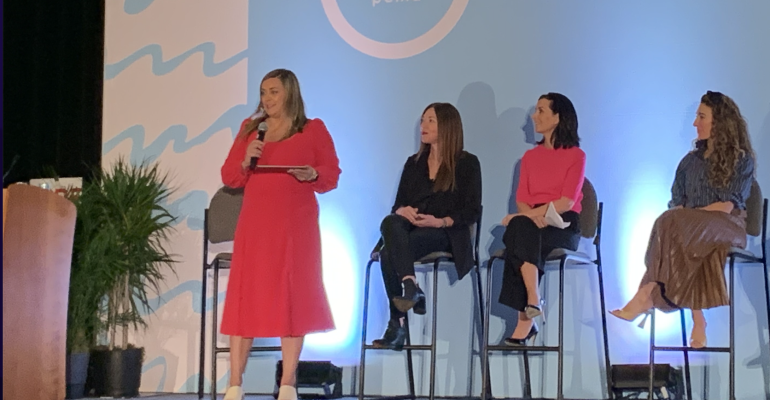What does it take to build a dedicated meetings team that can be both cost-efficient and ROI-driven? And what is the best way to convince others in the company to use the expertise and purchasing power of that meetings team?
Those were the questions addressed to a panel of veteran corporate planners during a session at Professional Convention Management Association’s Convening Leaders conference last month. They were Lori Allen, vice president, global event operations for MetLife; Deborah Caldwell, head of events, Asia-Pacific, for Bank of America; and Rose Strickland, vice president of events for Neuberger Berman.
Other than Allen, the planners all have small teams that handle a few hundred meetings each year. To make it work, the planners offered their best pieces of advice to the other planners in attendance:
Lori Allen: “We inform all departments of the benefits of working with us, which is that we know the company’s events policy in terms of financial and legal considerations—and there are consequences to doing things outside of policy. So, you don’t need to get bogged down with all of that. At the same time, we acknowledge to them that we are not here to do it all; we communicate with stakeholders around the world to offer advice and best practices and relevant ideas” from other internal meetings and from the meetings of other organizations.
Rose Strickland: “I need my small team to be well-rounded in all areas of planning rather than to be specialists; they must be able to take on any role for a short-term meeting when we need that. This requires training, collaboration across the team, and decision-making on a constant basis. We have weekly meetings on the status of all upcoming events, and we always try to find efficiencies for any back-to-back events. We also brief the business-unit stakeholders who are hosting each meeting. Even as we are doing that, we’re always innovating one element of our operation. You have to do that—just keep moving forward and evolving.”
Deborah Caldwell: “A ‘center of event excellence’ is actually more of a framework; each region might need to adapt our standard approaches based on different regulations and laws and cultures. Especially with sustainability, there are differences in what you can accomplish in emerging markets. For instance, recycling is not comprehensive in some places, and bottled water is simply a necessity in some places. Getting my colleagues to become subject-matter experts is key for our center’s success and also for their career advancement. I make sure to give planners ‘stretch assignments’ that benefit not only our center but also their own skills development, because in order to get everything done around the world that we need to do, our planners need to be comprehensive advisors.”





